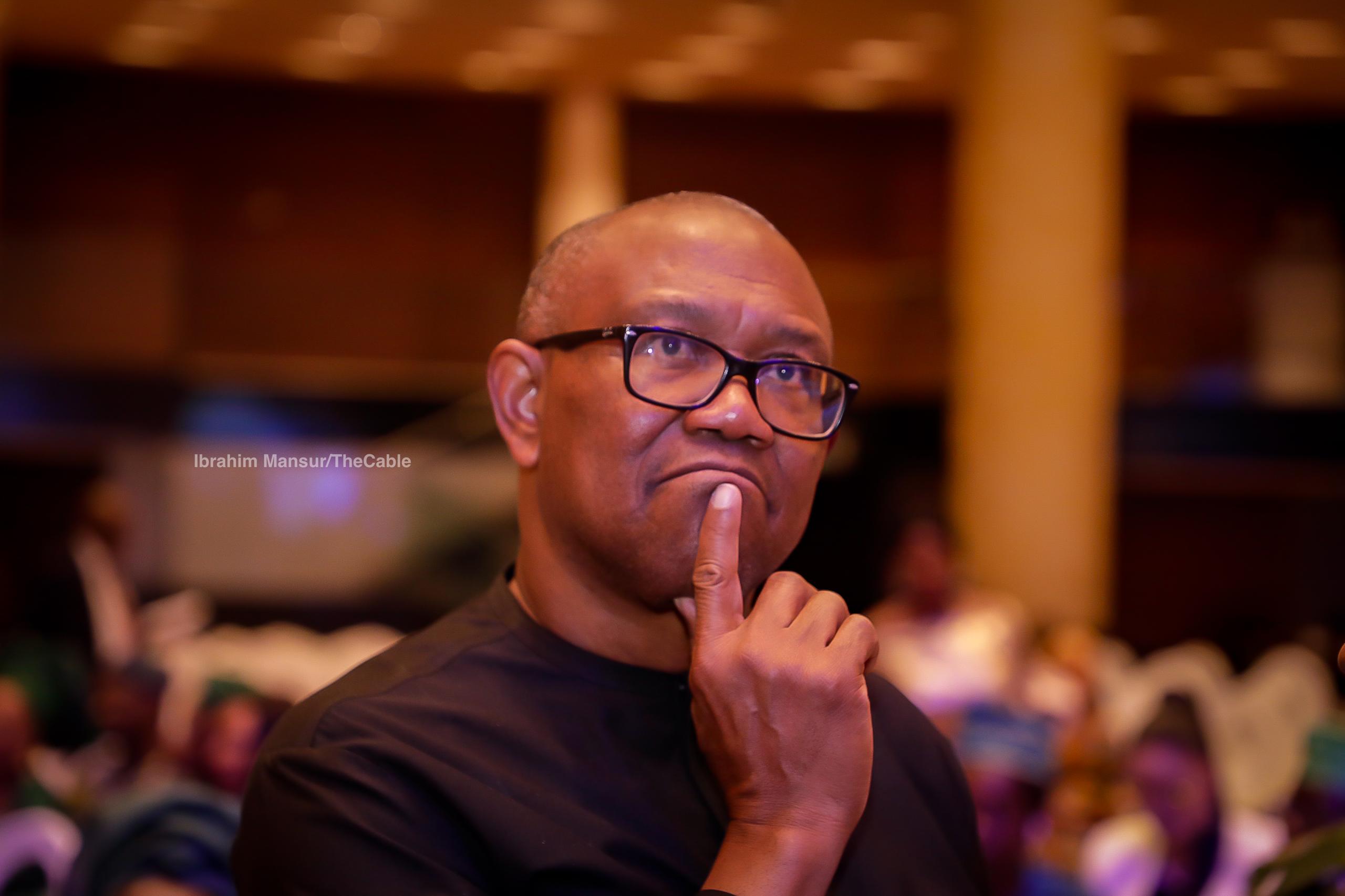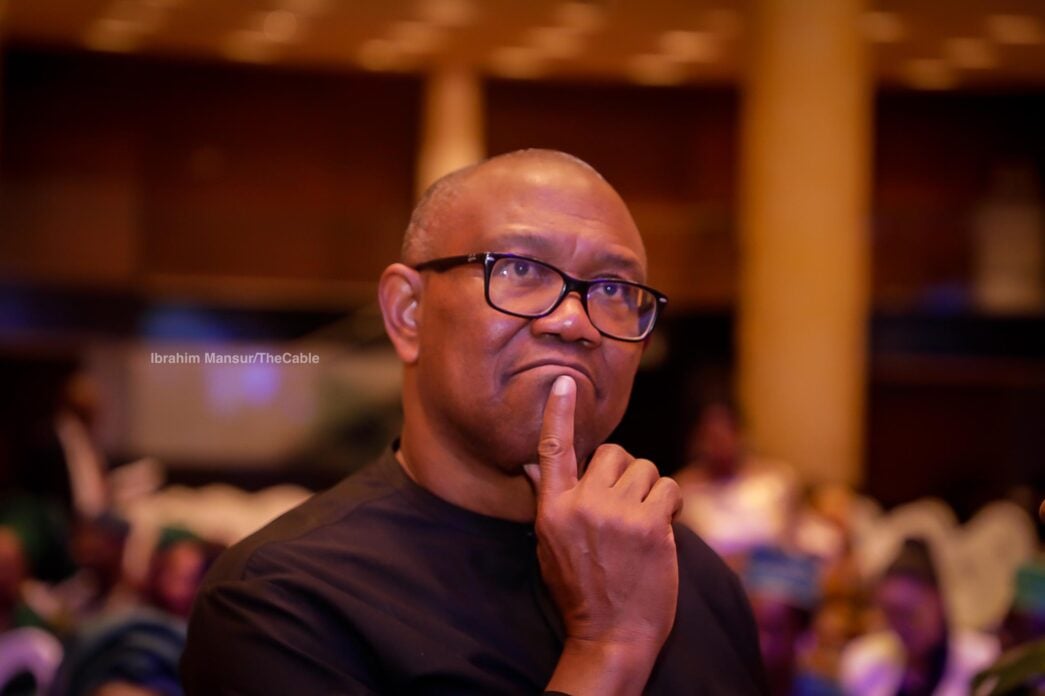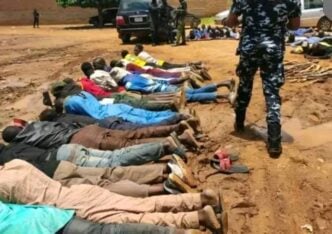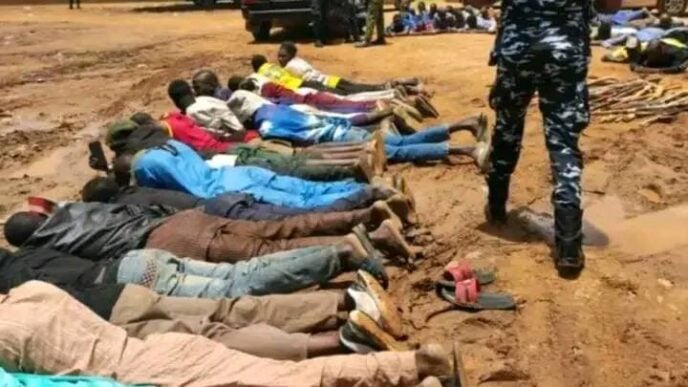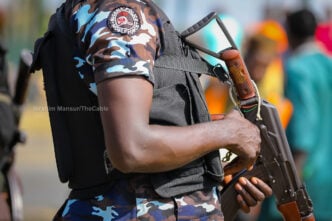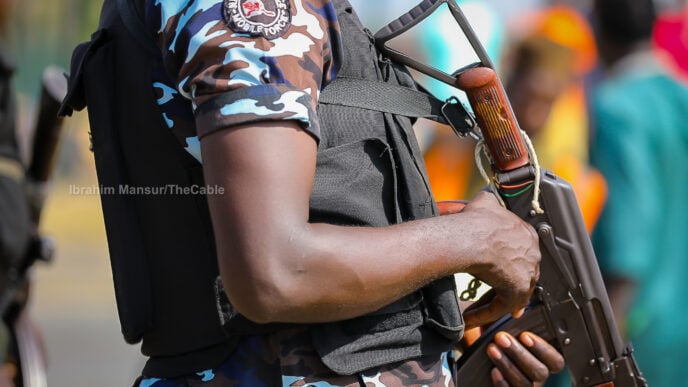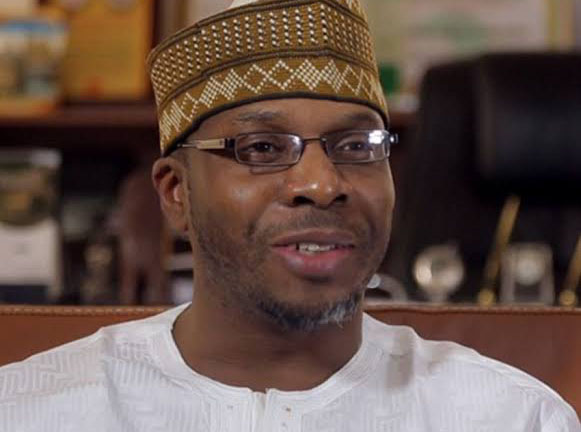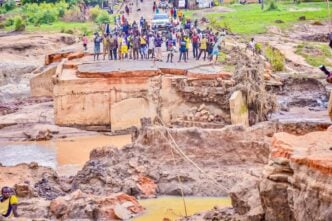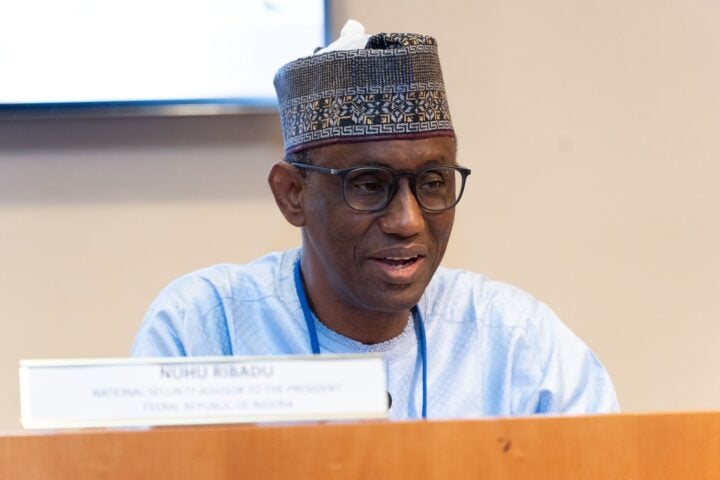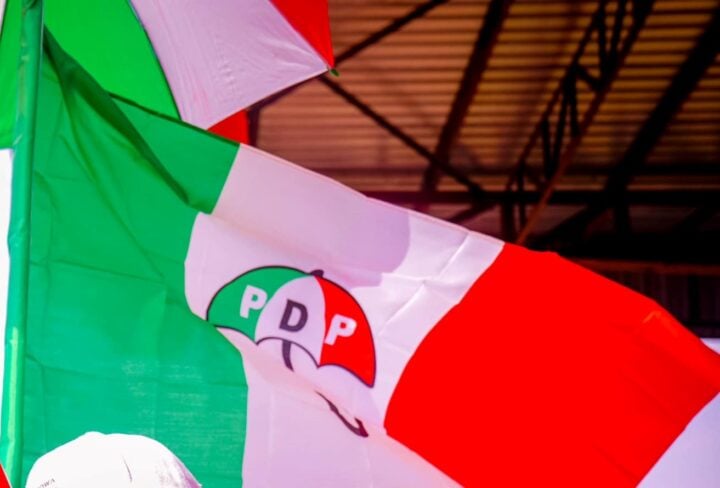Peter Obi
Peter Obi, the presidential candidate of the Labour Party (LP) in the 2023 general election, is walking a tightrope. Two years after shaking Nigeria’s political landscape and finishing a strong third in the election, he is now caught between a divided LP and a new opposition coalition under the African Democratic Congress (ADC).
As the race toward 2027 heats up and the opposition politicians scramble to unseat President Bola Tinubu and the All Progressives Congress (APC), Obi stands at a political crossroads.
Straddling a crisis-laden LP and a crowded ADC coalition, where his presidential chances are anything but certain, he appears to be hedging his bets, anchored by the adage: don’t put all your eggs in one basket — yet risking the prospect of ending up with none.
OBI’S PERFORMANCE IN THE 2023 ELECTION
Advertisement
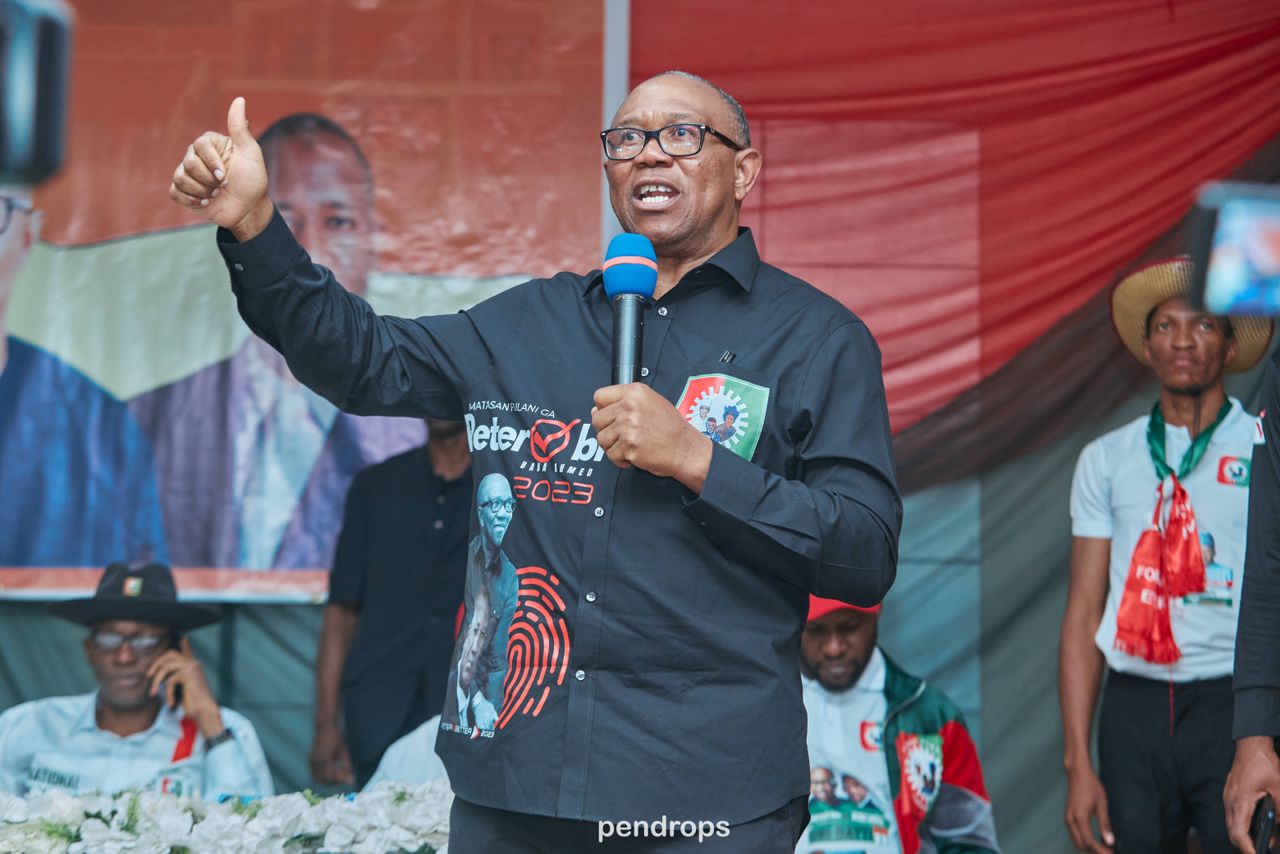
Obi’s political trajectory witnessed a dramatic shift in 2022 when he defected from the Peoples Democratic Party (PDP) to the LP days before the party’s presidential primary election, at a time it had become clear he stood little chance of clinching the ticket.
His decision to join the LP was widely seen as a gamble unlikely to pay off. But his campaign— anchored on prudence and accountability — struck a chord with many Nigerians, especially young voters disillusioned with both the APC and PDP.
The Obidient movement, a largely social media-driven force, propelled Obi to a third-place finish in the 2023 presidential election with 6.1 million votes, behind Tinubu of the APC (8.8 million votes) and Atiku Abubakar of the PDP (6.9 million votes).
Advertisement
Obi’s performance, including victories in Lagos and the federal capital territory (FCT), disrupted the traditional two-party dominance recorded in the nation’s elections over the years.
Following the election, Obi challenged the results, alleging widespread rigging and voter disenfranchisement. He vowed to pursue legal and peaceful means to reclaim his “stolen” mandate, though the courts ultimately upheld Tinubu’s victory.
With 2027 on the horizon, Obi now faces fresh political headwinds that could derail his presidential ambitions.
THE LP CRISIS
Advertisement
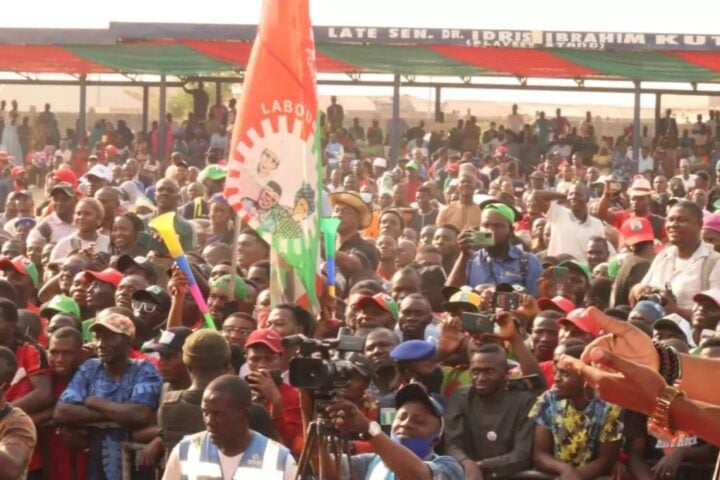
Since the last election, the LP has known no peace, grappling with a protracted leadership crisis that has lingered.
Things got messier in February 2024, when Oluchi Oparah, the party’s factional national treasurer, accused Julius Abure, the national chairman, of misappropriating N3.5 billion, a claim the LP chairman denied while threatening legal action.
The allegation led to calls by party members for Abure’s removal.
Before then, a high court in Abuja had, in April 2023, restrained Abure, Farouk Ibrahim, national secretary; Clement Ojukwu, national organising secretary; and Oparah from parading themselves as national officers of the party.
Advertisement
On September 4, 2024, Nnenadi Usman was appointed to chair a 29-member caretaker committee at an event convened by Alex Otti, governor of Abia.
But in a judgement on October 8, 2024, a federal high court affirmed the Abure-led leadership and a March 2024 Nnewi convention that re-elected Abure.
Advertisement
Emeka Nwite, the presiding judge, ordered INEC to recognise Abure as the legitimate chairman of the party.
In a judgement delivered on January 17, 2025, the court of appeal ruled that its earlier decision in November 2024, recognising Abure as the party’s chairman, remains valid and has not been overturned by any court.
Advertisement
On April 4, the supreme court set aside the judgment of the court of appeal, stating that the appellate court lacked the jurisdiction to have affirmed Abure as chairman of the LP since the substance of the case was about the party’s leadership.
The apex court held that the issue of leadership is an internal affair of a party over which courts lack jurisdiction.
Advertisement
The apex court ruling has left the Labour Party more divided than ever, with each faction interpreting the verdict to suit its own position. Abure’s supporters argue it confirms his authority, while his rivals say it exposes the illegitimacy of his leadership. Instead of bringing clarity, the judgement has intensified the party’s internal chaos.
NEW POLITICAL ALIGNMENT
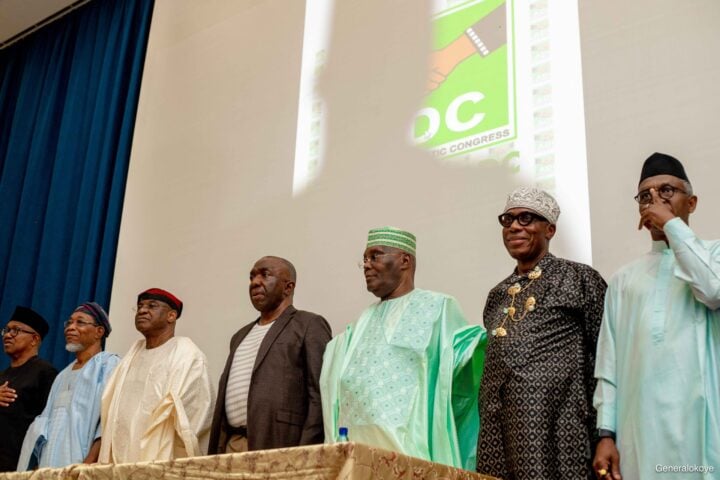
In July 2025, a significant realignment in Nigeria’s opposition politics occurred with the unveiling of a coalition under the ADC.
The coalition, comprising prominent figures such as Obi, Atiku Abubakar, former vice-president; David Mark, former senate president; Nasir el-Rufai, former Kaduna governor; and Rotimi Amaechi, ex-governor of Rivers, aims to stop Tinubu’s re-election bid in 2027.
The coalition’s formation is seen as a strategic response to the disintegration of the opposition vote in 2023, which culminated in Tinubu’s victory. By uniting under the ADC, opposition leaders hope to consolidate their support and present a united front against the APC in 2027.
On July 2, 2025, Obi attended the coalition’s unveiling at the Shehu Musa Yar’Adua Centre in Abuja, alongside his 2023 running mate, Yusuf Datti Baba-Ahmed.
In a post on X, Obi reaffirmed his commitment to the ADC, stating that the decision to adopt the party was made after “deep reflection” on Nigeria’s challenges and the need for a new direction.
“This decision was not made lightly. It comes from deep reflection on where we are as a country and what must be done to move forward. No one group can change Nigeria alone. To dismantle the structures that keep our people in poverty and insecurity, we must build bridges, not walls, even when those bridges are uneasy,” Obi wrote a day after the coalition unveiling.
Despite aligning himself with the ADC coalition, the former Anambra governor, who has repeatedly expressed his intention to run for president in 2027, insists that he remains a member of the LP.
Obi’s place in the ADC remains murky. While coalition members like Amaechi and Atiku have formally ditched their former parties to embrace the coalition, Obi has yet to do so.
Within the ADC, Obi faces stiff competition for the presidential ticket. Atiku, who has contested the presidency six times since 1993, is widely believed to be positioning himself for another run in 2027. His extensive political network, particularly in northern Nigeria, and his ability to win party primaries make him a formidable contender.
Amaechi, who came second in the APC’s 2022 presidential primary, has also declared his ambition to contest the ADC ticket, emphasising a single-term presidency and the need to respect Nigeria’s informal power-sharing arrangement between the north and south.
Nigeria’s political culture since 1999 has been shaped by power rotation between the north and south, with the presidency typically rotating between the two regions every eight years.
After the late President Muhammadu Buhari’s two terms (2015–2023) as a northerner, Tinubu, a southerner, won in 2023, leading many to argue that the south should retain the presidency until 2031.
Obi and Amaechi, both southerners, have publicly supported this view, promising to serve a single term if elected, aligning with the power-sharing principle. Atiku, a northerner, has not supported the debate. His supporters believe that his northern base and political experience give him an edge.
Analysts say Obi’s chances of securing the ADC ticket depend on the party’s commitment to a transparent and fair primary poll. But in Nigeria’s political landscape, party primaries are often marred by vote buying, backdoor deals, and intense horse-trading among delegates and power brokers.
Obi’s national popularity, particularly among the youth, and his proven electoral performance in 2023 make him a strong contender. Mark, ADC interim chairman, has emphasised the party’s commitment to internal democracy.
Still, the coalition’s broad mix of interests and clashing ambitions could pose a stiff challenge to Obi’s bid.
PDP’S OVERTURES AND WIKE’S INFLUENCE
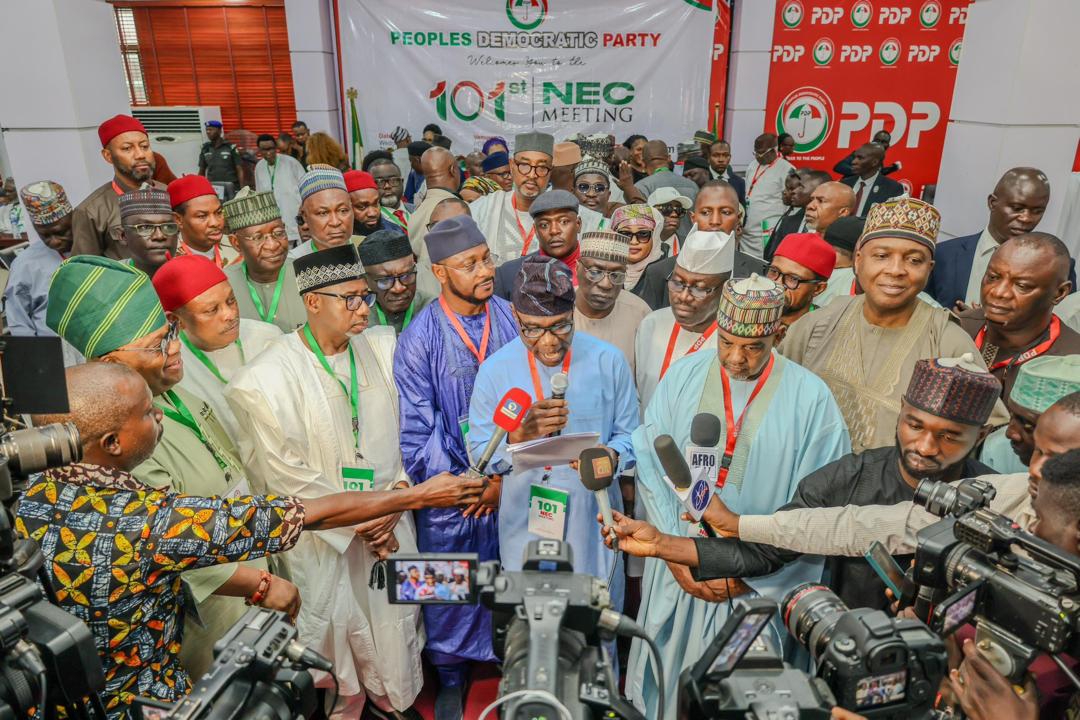
Up north at Wadatta Plaza, the headquarters of the PDP, the party, despite a wave of defections, has declared an end to its internal rifts and is actively courting Obi back into its fold.
In July, Jerry Gana, a founding member of the party and former minister, stated that the party had reached out to Obi, describing the PDP as a “solid platform” for his ambitions.
However, Obi’s potential return to the PDP is complicated by the party’s lingering internal tensions and the influence of Nyesom Wike, minister of the FCT and Tinubu’s ally.
Wike remains an influential figure in the PDP and would resist any moves that threaten Tinubu’s re-election. His rivalry with Atiku, which contributed to the PDP’s fragmentation in 2023, could extend to Obi if he rejoins the party.
OBI’S DILEMMA
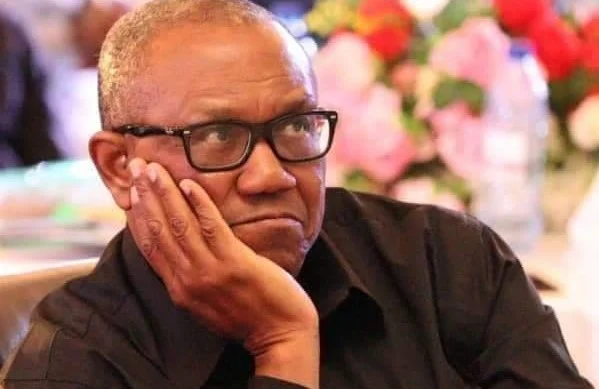
Political pundits say Obi’s current position of straddling the LP and the ADC coalition proves he is in a dilemma.
Remaining in the LP offers the possibility of securing the presidential ticket, given an assurance of a faction of the party. However, the party’s internal rifts and limited organisational capacity pose significant risks.
Becoming a full member of the ADC, including resigning from the LP, would align Obi with a coalition that has greater political heft, given the inclusion of experienced figures like Atiku, Amaechi, and el-Rufai, among others. However, securing the ADC ticket is far from guaranteed, and Obi risks alienating his Obidient base if he is perceived as compromising his principles for a coalition slot, particularly as a vice-presidential candidate.
IS OBI AT A POLITICAL CROSSROADS?
Kunle Lawal, executive director at Electoral College Nigeria, believes it’s still too early to draw firm conclusions.
“He’s a human being. He has freedom of association,” Lawal said. “Maybe because the incumbent president and his supporters are painting Abuja with posters, people think 2027 is already here. But it’s still a long time.”
He argues that much can change before the next general election, citing how President Bola Tinubu’s political dynamics shifted after Muhammadu Buhari’s death.
“Tinubu assumed he didn’t have to work in the north, so most of his appointments were sectionalised. Perhaps he was doing whatever he was doing because ex-President Muhammadu Buhari was alive. But the moment Buhari died, a lot changed in terms of the APC’s control. No more 12 million votes,” he said.
“So, a lot of things can happen before 2027. A whole lot.”
As Obi navigates a faltering LP and an evolving nascent ADC coalition, questions swirl about his plan heading into the 2027 election.
The former Anambra governor stands at a critical juncture in his pursuit of the presidency.
